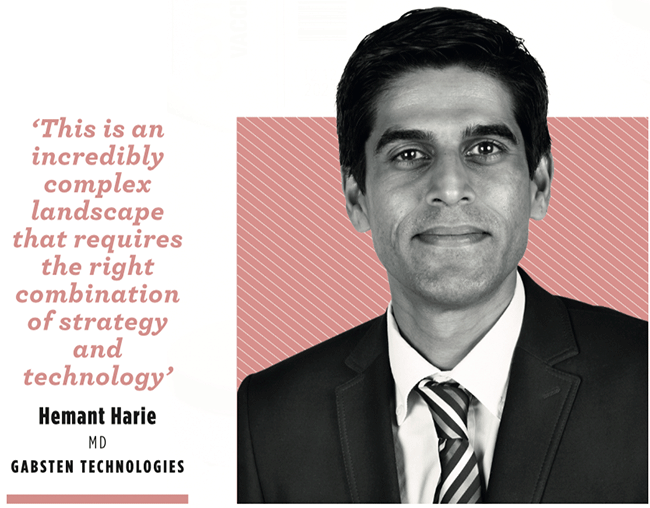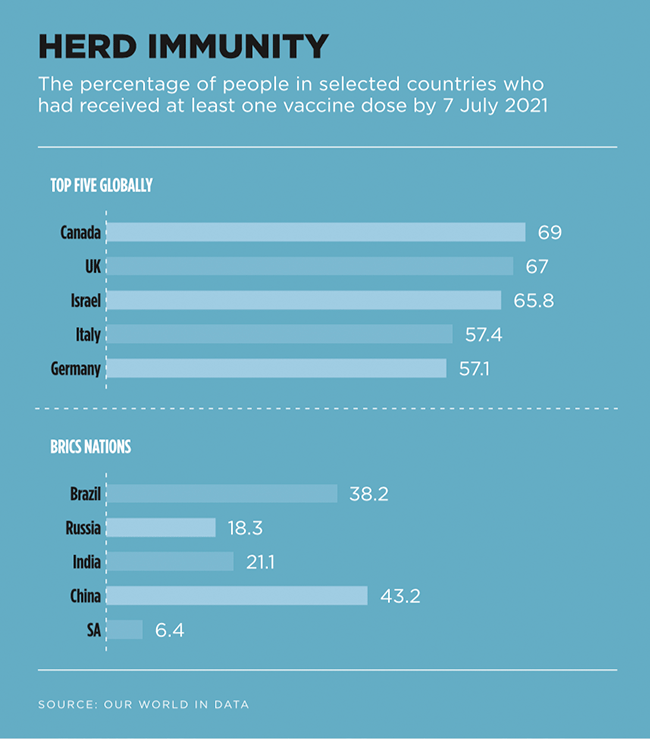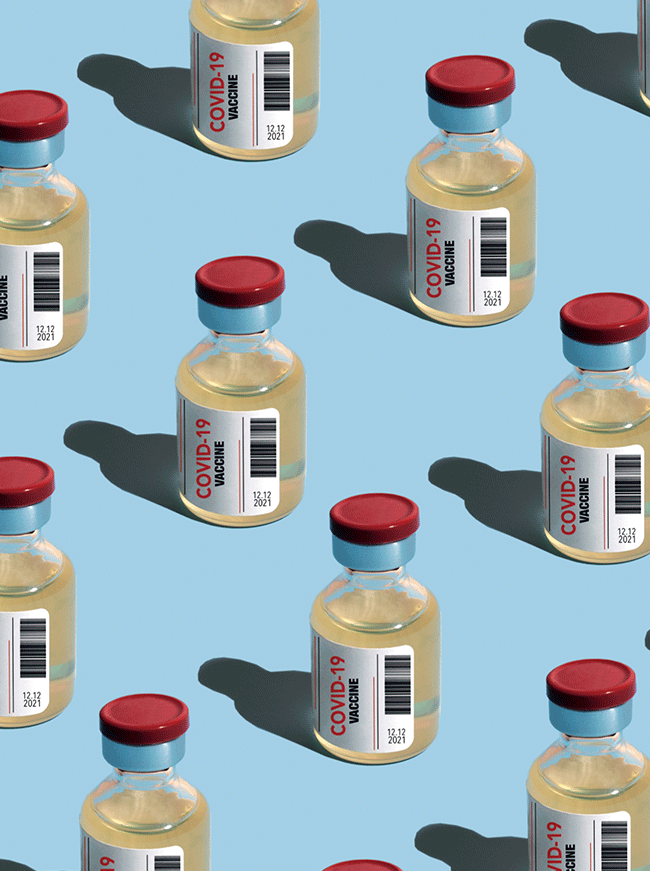From the very beginning, COVID-19 has been a thoroughly modern pandemic. News of the disease spread rapidly across our highly unequal, hyper-connected world – as did the disease itself, accompanied by social media misinformation campaigns and tech-enabled solutions to problems that few of us had contemplated before. In a locked-down world, we turned to digital technologies to help us navigate the crisis, from e-learning to e-commerce to e-everything.
Effective use of technology will be key to the global COVID-19 vaccine roll-out, as Titilayo Adewumi, regional sales director (West Africa) at SAP, explains. ‘The scale of governments’ vaccination roll-outs is unprecedented, which means that current systems and processes are too slow and inflexible to facilitate the vaccination roll-out at scale,’ she says.
‘When one considers the complexities of phased roll-outs, multiple doses and reporting, it is essential that governments leverage technology to streamline data collection, transfer and analysis to speed up roll-outs.’
Renee Patton, global director of education and healthcare at tech giant Cisco, agrees. ‘COVID-19 has been, in my opinion, one of the biggest challenges we’ve ever faced as a global community – and the vaccine is at the heart of our recovery from this pandemic,’ she says. ‘We’ve experienced tremendous loss over the past 10 months and different communities have been disproportionately impacted. And, as we now shift our focus to rolling out the vaccine, we need to facilitate an inclusive recovery; meaning, we need technology that can work with governments, healthcare providers, pharmacies and communities to ensure they have a safe and effective administration of these vaccines.’
The US set its Independence Day holiday on 4 July as the ambitious goal date by which it wanted to vaccinate 70% of its adult population, but those efforts were hampered by public confusion about appointments, availability and follow-up jabs. SA has had a similar problem, with many of the country’s seniors battling to figure out where or when to go for their shots, or if they even had a place in the queue. ‘The process, right now, is leading to more questions than answers,’ says Patton. ‘People want to know what phase they are in, how to make an appointment and why they haven’t heard from their doctors about the vaccine yet. This endeavour requires massive co-ordination and accurate communications with patients and the greater community for it to work.’
She points to contact-centre technologies as a solution to the communication challenge, adding that ‘having cloud-based technology gives you the ability to quickly scale existing operations and set up call centres in record time. Having that kind of speed to execute is very important under these circumstances’.

Yet what works in the US might not work in other countries, especially when the resource gap between the developed and developing world is so pronounced. As SA President Cyril Ramaphosa said during his visit (as Africa’s sole representative) to June’s G7 Summit, ‘we brought a message here that we would like to have access to the vaccines as well, so that the people of Africa – from whom only 2% have now been vaccinated as opposed to much higher percentages in the North – should also be vaccinated’.
Eckart Zollner, head of business development at Ikhaya Automation Systems, argues that developing countries should ‘not be looking to our international counterparts for assistance’, but should rather in-source home-grown solutions to the COVID-19 problem. ‘Africa is a continent with its own unique challenges, which is why we need technology solutions built to address our specific obstacles,’ says Zollner. ‘ICT providers in Africa are already accustomed to solving complicated problems. Gas-powered cooler units have been developed for instances where there is no electricity or cooling infrastructure, and solar power is used to run refrigeration at remote medical facilities – showing that where there is a will, African ICT providers will find a way. Such a can-do attitude is critical to getting the infrastructure and technology in place to facilitate the vaccine roll-out across the continent.’
One such solution is the mVacciNation digital toolbox, developed by the Vodacom Group and the AU Development Agency, which aims to accelerate the COVID-19 vaccine roll-out by managing vaccination appointments and stock availability in AU member states. The mobile platform has already been deployed in countries such as Mozambique, Tanzania and Nigeria to manage infant inoculations. Each time a patient is vaccinated, mVacciNation updates their digital record. If a further dose is required, it automatically schedules and confirms a follow-up date via SMS. The toolbox can be linked to the country’s choice of temperature-controlled supply chain, drug safety and vaccination travel passport platforms.
Meanwhile, South African Health Product Regulatory Authority (SAHPRA) recently launched the Med Safety app, which will support the vaccine roll-out by allowing patients or healthcare providers to report any adverse reactions to the jab. Two key terms here are ADR and AEFI – adverse drug reactions and adverse events following immunisation. ‘In an era where mobile technology is predominant, this application will be a huge benefit for all South Africans who encounter ADRs,’ according to SAHPRA CEO Boitumelo Semete-Makokotlela. ‘The app allows for seamless reporting of all ADRs and AEFIs related to COVID-19 vaccines and will accelerate how SAHPRA manages the reports.’
It’s clear, then, that technology is a key weapon in SA’s vaccine roll-out war. But the pre-existing condition of privacy concerns remains a huge concern. Take the case of Israel, for example. In early 2021, while most other countries were still wrapping their heads around their vaccine roll-outs, Israel placed an early marker for how to do it well. By mid-March, the country had given at least one shot of the vaccine to 60% of its residents, thanks in large part to the fact that the government had traded Israelis’ personal health data for access to the drug. As Wall Street Journal puts it, ‘Israel, in effect, agreed to function as a global experimentation laboratory, with the findings about its public to be used to determine vaccination strategies in other countries and aid the drug manufacturers in advancing research of coronavirus vaccines and other drugs and treatment’.

It’s easy to see the data-privacy problem there. As Hadas Ziv, head of policy and ethics at Physicians for Human Rights-Israel, says in an interview with MIT Technology Review, ‘we got a special agreement from Pfizer, and when they publicised the agreement, at least one-third of it was blackened out. And I think it’s done more damage than good because now we don’t know how much information they get on us’.
In SA, the Electronic Vaccine Data System (EVDS) stores and processes patient information, including details about the COVID-19 vaccines. As in Israel, those health records contain confidential medical data as well as personally identifiable information. ‘While the value of the EVDS lies in the data generated, this also introduces compliance challenges,’ according to Hemant Harie, MD of data-management consultancy Gabsten Technologies, pointing to the Health Professionals Council of South Africa’s recommendations on the retention of medical records (which can be up to 25 years after treatment has ended), and balancing that against the Protection of Personal Information Act (PoPIA), which requires that records of personal information must not be retained any longer than is necessary for achieving the purpose for which the information was collected and processed.
‘This means that medical records cannot simply be retained randomly or indefinitely, and some kind of strategy must be in place,’ says Harie. ‘Data protection in a system like the EVDS is complex. Data must be protected from accidental deletion, malware attacks and other cybersecurity threats; it must be recoverable in the event of a data-loss incident; and it must be available for reporting purposes – all while maintaining compliance with all applicable legislation. ‘This is an incredibly complex landscape that requires the right combination of strategy and technology. To ensure compliance with retention requirements as well as PoPIA, effective data management needs to be applied.’
But in a crisis, do patients even care? In India, a recent EY and Ipsos MORI survey found that 80% of citizens felt their government had been effective in using digital tech to respond to the pandemic. That, in a country where the Delta variant has caused a health disaster that it might take decades to recover from. For the moment, then, the focus across the world is on solving the problem of the pandemic – and any tool or technology that can help will be used.








